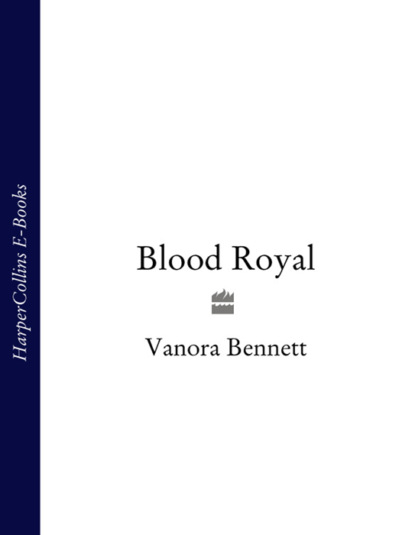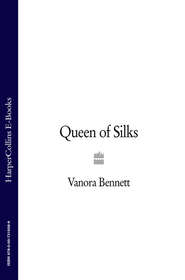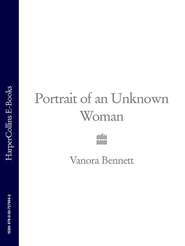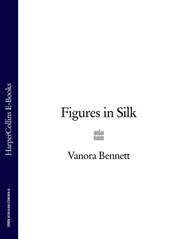По всем вопросам обращайтесь на: info@litportal.ru
(©) 2003-2024.
✖
Blood Royal
Настройки чтения
Размер шрифта
Высота строк
Поля
Jean shook his head. ‘You worry too much,’ he said, relaxing. ‘No one does say anything like that.’
‘Gossip comes from nowhere,’ Christine replied. ‘When you’ve spent as much time at court as I have, you’ll understand that. Catherine and Charles both … brought up in corners as they’ve been … it would be an easy conclusion to draw. I wouldn’t want Catherine’s chances of a good marriage spoiled by … doubts.’
She looked defiantly at her son. ‘It doesn’t matter about Charles. He’s married already – and he has two older brothers. No one is going to worry too much whose blood runs in his veins when he’s only third in line to the throne. But Catherine has everything still ahead. Her husband will need to feel sure of her line. It matters for her. So – let her tend her father. Let the world see their bond of familial love. Father and daughter together. Blood tells.’
‘What if,’ Jean asked, playing devil’s advocate, ‘she actually is a bastard? What if, by building up that relationship, you are conniving at passing off a cuckoo child as the King’s own – and maybe perpetrating a fraudulent royal marriage? Wouldn’t you feel that was a sin?’
But Christine only shook her head. She enjoyed these little jousts with her son. ‘No,’ she said, grinning too. ‘That knowledge is for God, not me. I can’t know His mind; I’m only mortal. I can only concern myself with how things might appear to other people like myself. Those two children have had a hard enough start in life. They don’t need any more trouble. I want that girl to have the happy marriage, the children, and the love she deserves. This is a way of helping that to happen.’
Jean de Castel shrugged, accepting his defeat. ‘You’re much too devious,’ he said, as she kissed his forehead and moved towards the door. It was only when Christine was already in the doorway that he remembered the obvious point, and called: ‘But – does your Catherine even want to marry? Are there princes she talks about? Friendships? Affinities?’ He couldn’t remember hearing of any.
Christine turned. For a moment he saw doubt in her eyes. She shook her head. ‘She says there’s enough to worry about with the King as it is,’ she replied. She looked down. Jean could have sworn his mother felt guilty about something, though he couldn’t imagine what. ‘She won’t talk about it.’
The Queen didn’t know Catherine had found her way to the white room. Although Christine insisted she go on attending her mother every day, Catherine couldn’t find words to tell her mother she knew about her father’s madness.
Her head was full of questions. Her mind was full of pictures of her mother – or a younger version of her mother, still slim, veiled in the enormous veils she used to favour, cackling wickedly over a racy joke, pertly sticking her breasts out – kissing the uncle Catherine only vaguely remembered: tall, blond Louis of Orleans, with his floppy hair and mischievous eyes.
Could her mother really have … with her own husband’s brother? Catherine found the idea almost too shocking to believe. She wanted to ask her mother, but fear stopped her tongue. She couldn’t imagine her mother’s face if she dared to ask. The thought of trying made her blood run cold. She kept her peace; the questions stayed in her head.
So Queen Isabeau was mildly puzzled by her daughter’s accusing looks in the hot boudoir, between the calorifères that poured out heat and rose oil fumes from the burning coals in their bellies, and the elaborate frescos of woodland scenes and happy children eating fruit among the flowers.
The Queen dipped her fingers into the bowls, sampling the flavours, as the two dwarves unwrapped the sweets and laid them out. Twenty pounds of dragées. Twenty pounds of coriander balls. Twenty pounds of paste du roy. Twenty pounds each of sweetmeats flavoured with cinnamon and rose sugar. Forty pounds of sugared nuts. She licked the sugar off her sticky hands. There could be no dances this winter, of course. But there was nothing wrong with a little something sweet.
‘Good,’ she said thickly. ‘The rose sugar – try.’
The dwarves both grinned eagerly and began stuffing their faces. But Catherine just shook her head and went on looking glum and sulky.
Queen Isabeau didn’t know what was the matter with Catherine. Girls were mystifying. It wasn’t as if she was one of those poor duchesses, running round pawning their valuables to raise a ransom for their husbands.
Isabeau munched on, looking at her daughter with a sudden speculative interest. Unless … She couldn’t, by any chance, be in love with one of the young chevaliers imprisoned at Azincourt?
She shook her head. She could see Catherine wouldn’t tell her. Too cross. Well, it was her loss. The sweets were delicious. She reached out two pink fingers and helped herself to more.
The next day, when Catherine went to her mother’s house it was empty. The tapestries had gone off the walls; the furniture had gone off the floor. But there was a letter for Catherine; a guard gave it to her. It said Isabeau and her household had left Paris for the castle of Melun. The Queen explained casually that she’d decided to spend Christmas there. Paris – full of noblewomen in widows’ weeds, selling art objects to each other and to the Italians to raise ransom money for their husbands in England – was too depressing. She’d move on to Vincennes after Christmas.
‘The selfishness of it. She should have stayed,’ Christine said angrily; ‘at least in the same city as her husband. The last thing we need now is rumours that the King’s marriage is over.’
But Catherine was quietly relieved at Queen Isabeau’s thoughtless departure. At least, she thought, she needn’t worry about confronting her mother and discussing the past for a while longer.
Outside, there was only bad news. All the strongmen kept advancing across the spectral landscape of France, threatening to converge bloodily on Paris. An English army advanced across northern France. The Duke of Burgundy’s separate army advanced across eastern France. In Paris, the widows and the surviving princes of the other French side – the Orleanist princes fighting with the Count of Armagnac – trembled. There were comets in the night sky; plagues in Paris; freak storms in the vineyards.
Inside, silence descended on the palace. War, Catherine found herself thinking, seemed to be about silence; about no longer having words or a common language that you could share with other people. Now the Queen was gone, and there were just servants, a princess, and a mad king, there were no guests at the Hotel Saint Paul. The only person who came to talk to Catherine and her father any more was Christine. Sometimes Catherine’s father was silent for days on end. Sometimes he made his own entertainment. Sometimes he shouted. Sometimes he stank. Once he defecated in front of her, and sang mockingly, ‘There! Golden crown shit! What d’you think of that?’
But Catherine sensed she was being tested; and any display of life was better than the dead silence. So she kept her face calm and cleaned up the mess on the floor herself; with rags and the bucket by the door. ‘There,’ she said brightly to the wet floor when she was done, ‘that’s better. Nothing to worry about now.’ And, in the window, her father started humming.
She’d started by being always afraid he’d turn violent; always aware of how many steps there were from where she was to the door. But he never did. She stopped needing Christine’s hand to hold (though she was always overjoyed to see Christine; to talk; it was exhausting being alone with her father’s desolation). He wasn’t angry with her. There was nothing for her to fear from him.
Soon the King began to come to her at the table in the white room. He’d sit down cautiously beside her, still averting his eyes. He’d drink water with her. Once he ate with her. He held her hand. He let her order a bath. He let her change his stinking shirt. And he didn’t seem to mind that she was there when he put his head on the table and wept, inconsolably, for the losses they were getting used to accepting.
‘There’s no comfort, no comfort,’ he’d whimper. ‘Everyone’s dying; because I’m dead.’
The next day she began to feel he had been right. The messenger who came said her eldest brother, Louis – heir to the throne – had died. Suddenly, of a fever. There was an epidemic in Paris.
Вы ознакомились с фрагментом книги.
Приобретайте полный текст книги у нашего партнера:
Приобретайте полный текст книги у нашего партнера:









